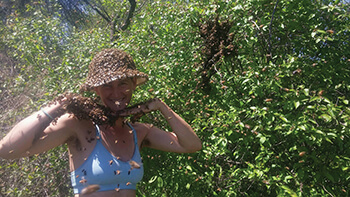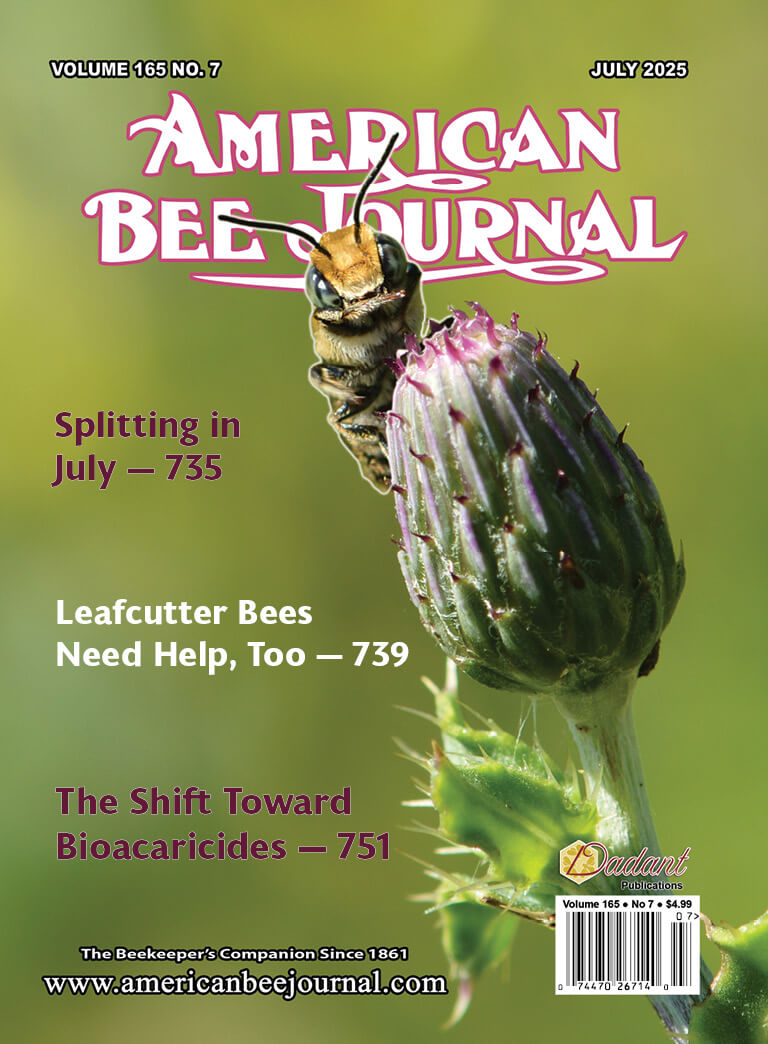
I can be naïve at times, so when I was asked to write an article about “why women are better beekeepers” I said sure, no problem. After all, the hardest part of writing is finding a topic. But in truth, the assignment turned into a nightmare.
My first mistake was thinking it would be fun. Once I began working on it, though, I realized I didn’t actually believe that women were better beekeepers, just different. So I decided to send a survey to the readers of my blog to see what they thought. I changed the wording and simply asked who were the better beekeepers and why. I didn’t collect names or emails, so the answers were completely anonymous.
Caught Off Guard
Beekeepers seldom surprise me, but I was totally derailed by their replies. I was firmly chastised for even asking the question. Many responses were along the lines of, “Why would you even ask such a stupid question?” or “Don’t you have anything better to do?” Another wrote, “This is the dumbest survey I have ever seen. It’s just a way to cause friction and controversy for no good reason.” Whoa, I was just asking.
The responses made me wonder if anyone remembered the best-selling book, Men Are from Mars, Women Are from Venus? That book, which sold 50 million copies and spent 121 weeks on the best seller list, is about the distinct ways the sexes respond to stress and stressful situations. Personally, I believe the sexes respond in different ways, but it appears that most beekeepers do not agree—at least not on the surface.
Sex Makes No Difference
Of the approximately 500 responses I received, I estimate that at least 90% said there is absolutely no difference between the abilities of male and female beekeepers. They said that beekeeping was more about experience, willingness to learn, intelligence, and compassion. One said, “I don’t think gender affects beekeeper success, instead each person’s personality and essential nature are the big factors.”
Others balked at the word “better.” One man asked, “Is the better beekeeper the one with the healthiest bees or the one that makes the most honey?” Good point. A woman wrote, “It all depends on how you measure success. If I manage to overwinter my one hive, I’m happy.”
Reading Between the Lines
Still, with a deadline looming, I went back and re-read the responses. I was looking for tell-tale remarks that would give me some insight into how we each evaluate other beekeepers. It turns out that a lot of the answers were followed by the very revealing word “but.” For example, “I don’t think sex matters, but men are smarter.” Or this, “It’s not an appropriate question, but women are more uniformly thoughtful.” And “I don’t know any women beekeepers, but I wish I did.”
If there was any overarching agreement among all the people who elaborated, it was that men have the advantage of being physically stronger. The physical ability of men was mentioned over and over, more than any other single characteristic in the entire survey. “Men are generally built better for heavy lifting.” Another explained, “Men are better at moving supers and cranking extractors; women are better at record-keeping.” A third explained it this way, “Men are stronger and can lift heavy equipment more easily, but women have to be more resourceful to make up for it.”
It’s More Than Just Muscle
Men are also seen as being more scientific, more expedient, and more business oriented. A woman lamented, “My husband slams through the hive going by the UM book, nothing else matters.” One man explained that “Men are more dogmatic about how things should be done, while women are more open to new ideas.” Another writer put it like this, “I don’t think gender makes a difference, but since there is no “man power” movement, I choose men. After all, the drones need someone to cover their backs.”
Women, on the other hand, were almost universally seen as more caring and more deliberate. “Women are better suited to the finer points of bee breeding,” said one. In characterizing female beekeepers, respondents used words such as intuitive, nurturing, instinctive, detail-oriented, patient, gentle, and observant. One man said, “Unlike women, men can crush a few bees without becoming emotionally attached to each one.”
Business and Art
Many respondents thought men were more interested in the business of bees, while women are more concerned with
….


